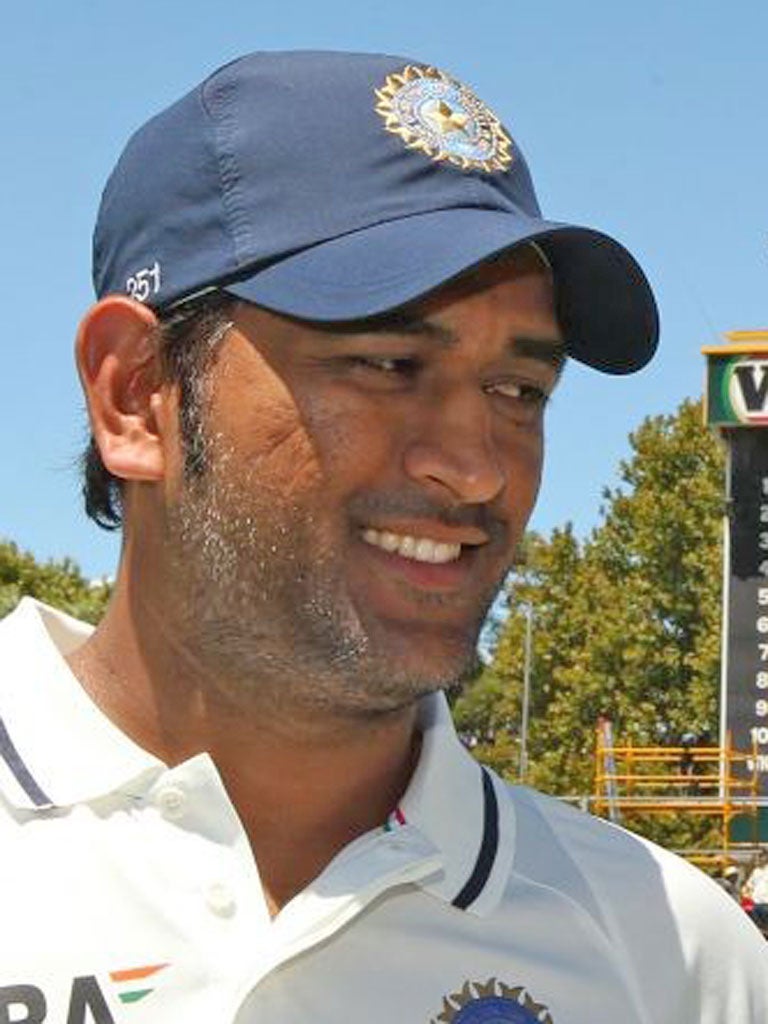Shamya Dasgupta: India need road map to avoid veering into abyss
The Indian Angle

For a 20-month period ending in August 2011, India were No 1 in the International Cricket Council's Test rankings. Whether you take the rankings seriously or not, it was proof that they were a good Test-playing nation, practically unbeatable at home and competitive when on tour. From there to their current position of fifth on the same table has been quite a fall. To rub salt into the wound, England have proved that India are not unbeatable at home any more.
Admittedly, the Indian team rose to the high it did when Rahul Dravid and V V S Laxman were still in the mix, when the Indian spinners got more bite off Indian tracks than opposition slow bowlers, and when M S Dhoni's captaincy bore results. Sachin Tendulkar and Virender Sehwag were effective batsmen, Zaheer Khan was one of the most incisive pacers around, and Gary Kirsten, not Duncan Fletcher, was the Indian coach.
Those facilitating factors are no longer there, and in India's case, fate has conspired so that they disappeared almost simultaneously. "It is not easy to replace players like Rahul Dravid, Sachin Tendulkar and V V S Laxman," Dhoni said at the end of the 1-2 embarrassment, stating the obvious.
But the problem Indian Test cricket faces is not about replacements. It owes much to not anticipating the eventuality and preparing for it. Essentially, India have followed the example of the West Indies of the 1980s and not of Australia of the mid-2000s when they entered the so-called phase of transition.
West Indies sank into an abyss after the golden generation moved on but Australia, even if they didn't come out of it as strong as they once were, do not appear as weak or vulnerable as India do today. Is it fair to expect a batting order that once included Sehwag, Dravid, Tendulkar, Laxman and Sourav Ganguly to be as strong when most of them have retired and the ones that haven't are closing in on their best-before date? Obviously not.
But it would not have been unfair to expect that the best of the rest would be readied, and possibly blooded, by the time the heroes bade farewell.
But in the high created by that No 1 ranking and the triumph in the 50-over World Cup, it was made to appear that the problems of the near future were only in the minds of analysts in the media. What made the situation worse was the focus on the Indian Premier League, which, apart from taking up a large chunk of Indian cricket's time and imagination, also provided an avenue that appeared much more attractive, and certainly more lucrative, to the next generation.
The money was flowing and India would carry the tag of defending one-day world champions until the 2015 World Cup, so there was no need to worry. And even if India lost the Test series 4-0 in England and Australia, all was well because when they came to India, we would do the same to them. West Indies (2-0) and New Zealand (2-0) played their role well from India's point of view, but England chose not to.
After the two Twenty20 assignments against England, India play a limited-overs series against Pakistan followed by a five-match ODI series against England. The next Test fixtures are in February-March against Australia.
The big decisions, however, must be taken now. Tendulkar may or may not retire, but an overhaul of Indian cricket – in personnel and planning – must happen before the Australia series.
Test cricket remains as important as it has always been and it will be a long time before T20s can replace it as the more important version of the game. The Indian Premier League riches cannot blind the cricket authorities to that reality. The loss to England must be analysed and a practical road map must be put in place. And a couple of series losses cannot derail the process as long as there is a long-term vision to save the Indian Test team.
Shamya Dasgupta is senior editor at Wisden India, wisdenindia.com
Subscribe to Independent Premium to bookmark this article
Want to bookmark your favourite articles and stories to read or reference later? Start your Independent Premium subscription today.

Join our commenting forum
Join thought-provoking conversations, follow other Independent readers and see their replies